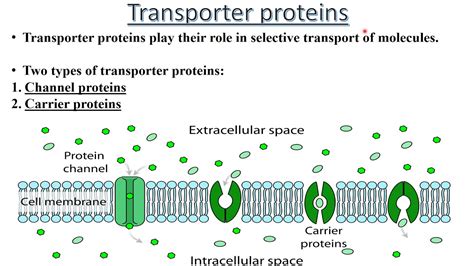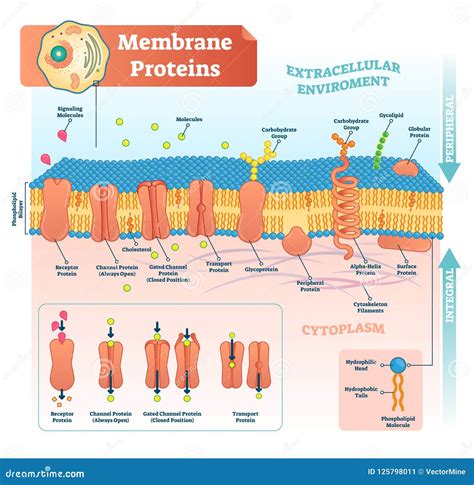protein chanel | protein channels explained protein chanel A channel protein is a unique arrangement of amino acids that is imbedded in the cell membrane and provides a hydrophilic pathway for water and tiny polar ions. As with all transport proteins, the size and form of each . Level; Broadsword +1: WAR/RDM/PLD/DRK 20 227 30 Steel Kilij: blue 21 N/A 30 Steel Kilij +1: BLU 22 229 30 Strider Sword: WAR/RDM/THF/PLD/DRK/BRD/RNG/NIN/DRG 19.
0 · what do channel proteins transport
1 · protein channels explained
2 · channel proteins vs carrier
3 · channel proteins examples
4 · channel proteins diagram
5 · channel proteins are involved in
6 · channel protein vs carrier protein
7 · channel protein biology
32K views 4 years ago. FFXIV: ShadowBringer - How to get lvl 80 Job Armor! .more. FFXIV: ShadowBringer - How to get lvl 80 Job Armor! SHAREfactory™.
A channel protein is a special arrangement of amino acids which embeds in the cell membrane, providing a hydrophilicpassageway for water and small, polar ions. Like all transport proteins, each channel protein has a size and shape which excludes all but the most specific molecules. A generic channel protein is . See moreDepending on whether it is gated or non-gated, a channel protein has a slightly different function. A non-gated channel protein simple allows . See moreWhen your muscles contract, this is the result of the action of gated channel proteins within your muscle cells. These cells respond to the neurotransmitter acetylcholine, which is present in high amount as the end of nerve cells. At the synapseor space . See moreMost channel proteins are made of several identical protein subunits which form a hydrophilic region in their center. Gated channels function by changing conformation upon . See more
A channel protein is a unique arrangement of amino acids that is imbedded in the cell membrane and provides a hydrophilic pathway for water and tiny polar ions. As with all transport proteins, the size and form of each . A channel protein is a special arrangement of amino acids which embeds in the cell membrane, providing a hydrophilic passageway for water and small, polar ions. Like all transport proteins, each channel protein has a size and shape which excludes all .
A channel protein is a unique arrangement of amino acids that is imbedded in the cell membrane and provides a hydrophilic pathway for water and tiny polar ions. As with all transport proteins, the size and form of each channel protein excludes all .Ion channels are pore-forming membrane proteins that allow ions to pass through the channel pore. There are many different types of channel proteins in your body, and each one will only let specific types of molecules pass through. Just like a house with three doors that go to the back yard- one for your cat, a bigger doggie door for your St. Bernard, and a .Channel proteins are integral membrane proteins that form pores or channels across the cell membrane, allowing specific molecules or ions to pass through by facilitated diffusion. These proteins are crucial for maintaining the cell's internal environment and play a .
There are two classes of membrane transport proteins—carriers and channels. Both form continuous protein pathways across the lipid bilayer. Whereas transport by carriers can be either active or passive, solute flow through channel proteins is always passive. Channel proteins facilitate the selective movement of ions and molecules across cell membranes, regulating physiological activities such as nerve signal transmission, muscle contraction, and water balance. What are Channel Proteins? Definition and Characteristics. Channel proteins are a subcategory of integral membrane proteins that form channels or pores in cell membranes for ions, water, or other small molecules to diffuse across.Allosteric regulation of ion channel proteins controls ion homeostasis in blood and extracellular fluids within narrow limits. Often, multiple integral proteins contribute to the formation of an ion channel. When stimulated, channel proteins rearrange to open a .
At their most basic level, channel proteins are transmembrane proteins that form a pathway through which ions and molecules can move across a membrane. This pathway, or “channel,” is created by the protein’s structure, which is comprised of one or more subunits that form a pore in the membrane.
what do channel proteins transport

protein channels explained
A channel protein is a special arrangement of amino acids which embeds in the cell membrane, providing a hydrophilic passageway for water and small, polar ions. Like all transport proteins, each channel protein has a size and shape which excludes all . A channel protein is a unique arrangement of amino acids that is imbedded in the cell membrane and provides a hydrophilic pathway for water and tiny polar ions. As with all transport proteins, the size and form of each channel protein excludes all .

Ion channels are pore-forming membrane proteins that allow ions to pass through the channel pore.
There are many different types of channel proteins in your body, and each one will only let specific types of molecules pass through. Just like a house with three doors that go to the back yard- one for your cat, a bigger doggie door for your St. Bernard, and a .Channel proteins are integral membrane proteins that form pores or channels across the cell membrane, allowing specific molecules or ions to pass through by facilitated diffusion. These proteins are crucial for maintaining the cell's internal environment and play a .There are two classes of membrane transport proteins—carriers and channels. Both form continuous protein pathways across the lipid bilayer. Whereas transport by carriers can be either active or passive, solute flow through channel proteins is always passive.
Channel proteins facilitate the selective movement of ions and molecules across cell membranes, regulating physiological activities such as nerve signal transmission, muscle contraction, and water balance. What are Channel Proteins? Definition and Characteristics. Channel proteins are a subcategory of integral membrane proteins that form channels or pores in cell membranes for ions, water, or other small molecules to diffuse across.Allosteric regulation of ion channel proteins controls ion homeostasis in blood and extracellular fluids within narrow limits. Often, multiple integral proteins contribute to the formation of an ion channel. When stimulated, channel proteins rearrange to open a .

channel proteins vs carrier

arbeitszeiten hermes samstags
13 Jul. 2023: Updated with 6.45 Level 80 Gear Sets. 23 May 2023: Checked for Patch 6.4. 24 Feb. 2023: Guide added.
protein chanel|protein channels explained

























